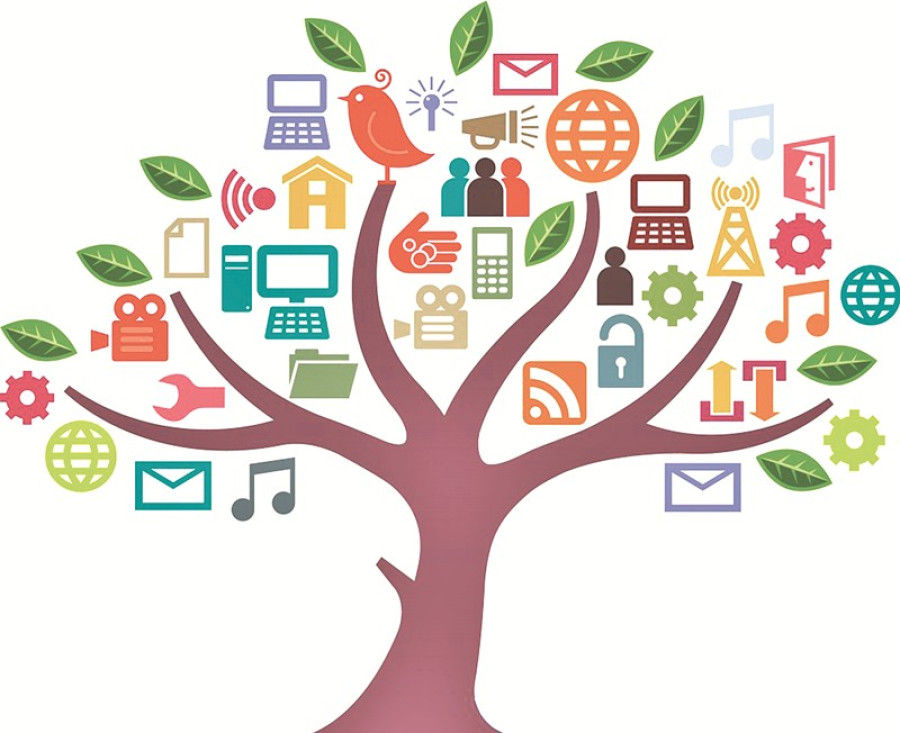Entertainment
How did social media dupe us?
Quite a while ago, #BeforeFacebookI trended on Facebook. People, excited, while some despiteful, thronged to share their experiences—I deterred.
Bikash Gupta
Quite a while ago, #BeforeFacebookI trended on Facebook. People, excited, while some despiteful, thronged to share their experiences—I deterred.
How would my life be like if there were no social media? I tend to spend a good amount of time on Facebook, trying to know what my friends are up to. I have subscribed to—in Facebook’s language ‘liked’—pages run by media, where I get to see anything—from new videos of Homs, which is a town appallingly devastated by five-year Syrian Conflict, to a new music video. I am on social media simply because I like to be informed. But lately, I have become circumspect. Am I really being informed? Is this stunting my growth by feeding just some select, mainstream information? Am I getting used to this mode of information? I fear so.
Most of the pages that I have liked are ones that I ‘liked’ a couple of years ago, when I was relatively naïve and I had to like them because it was a trend then. With time, I almost got used to them and did not even bother to fact-check on details. Now, with more pages, I have that luxury to check facts, and see counter arguments but it leaves me nowhere. Earlier, I was, in a way, self-assured that I could, at least, take a stance. Now, with the inflow and democratisation of information, I am stuck in a position where I have an awful lot to say but I cannot because I know the first half of my audience will contradict the second half, and I do not want to portray myself as ‘stupid’ or ‘confused’ in front of others. So, why—despite my self-acclamation that “contradictory views” helps us—have the aversion to new, often conflicting information?
Second, I have a problem with the way information is conveyed. There has been a heavy commercialisation in the media sector. The news channels and publication houses tailor-make news into one-minute videos with wonderful editing and fonts so that viewers remain ‘engaged’. You will not need much squinting to find a telling discrepancy. In times of catastrophe in a third world country, you have a drone flying to capture real images as if covertly trying to mock: “Look, our development in technology have gone so far and you guys are still here!”
The main problem with this is that we don’t get in-depth information in a one-minute video. And people have learned to scroll. People decide the fate of the content in the first introductory 15 seconds. If they pass the litmus test of “preserving our patience”, their content will sell. If they fail, their works will relegate into heaps of scraps in the information-load world.
The social media is eroding our patience and we are eroding their contents to suit our patience. It is a mutual downfall—agree or not. The videos evoke emotion, empathy and even action in some cases but it won’t necessarily make us know an issue comprehensively. We can have the charitable watch or a read to it, but that won’t influence people to know the issue comprehensively. Recently, I had shared a video on Facebook about starving children in Madaya in Syria and I, instantly, bought it. The video was depressing that I could not stop sharing it. The video depicted the ground situation. But it missed the complete details. There were layers and layers of issues that were not unearthed, and which I got to know only after I Skyped with my friend from Syria.
Facebook and other social media are helpful. If it were not for them, I would not even know many issues. They provide a good introduction to a story. It wouldn’t be right to just brush them off without acknowledging their positive impacts on our lives. However, if we want to know the world we live better, we need to move beyond one Facebook, Twitter minute of ‘watch’ and ‘read’.
Gupta is currently a student at Ramapo College, USA




 27.41°C Kathmandu
27.41°C Kathmandu










